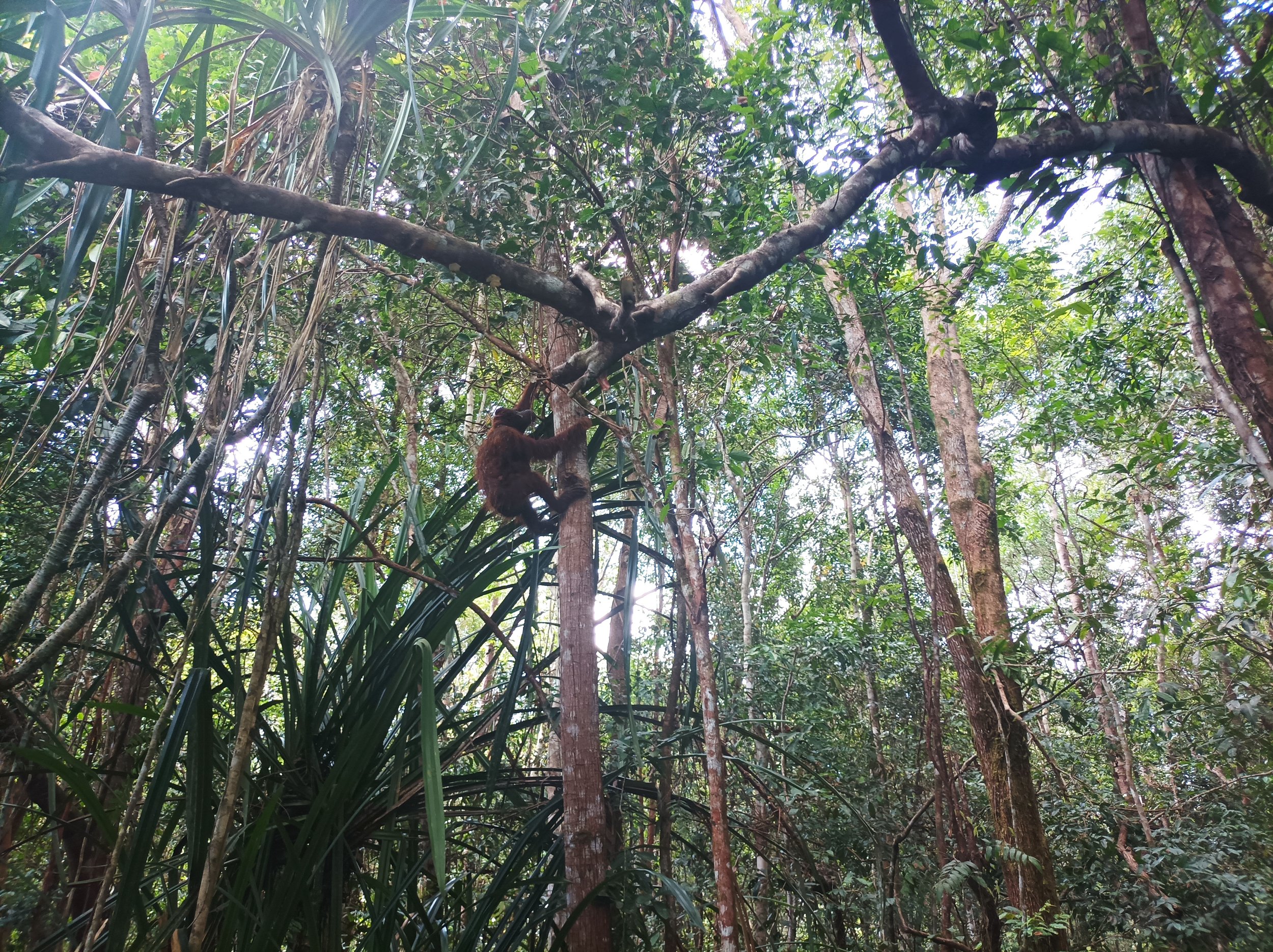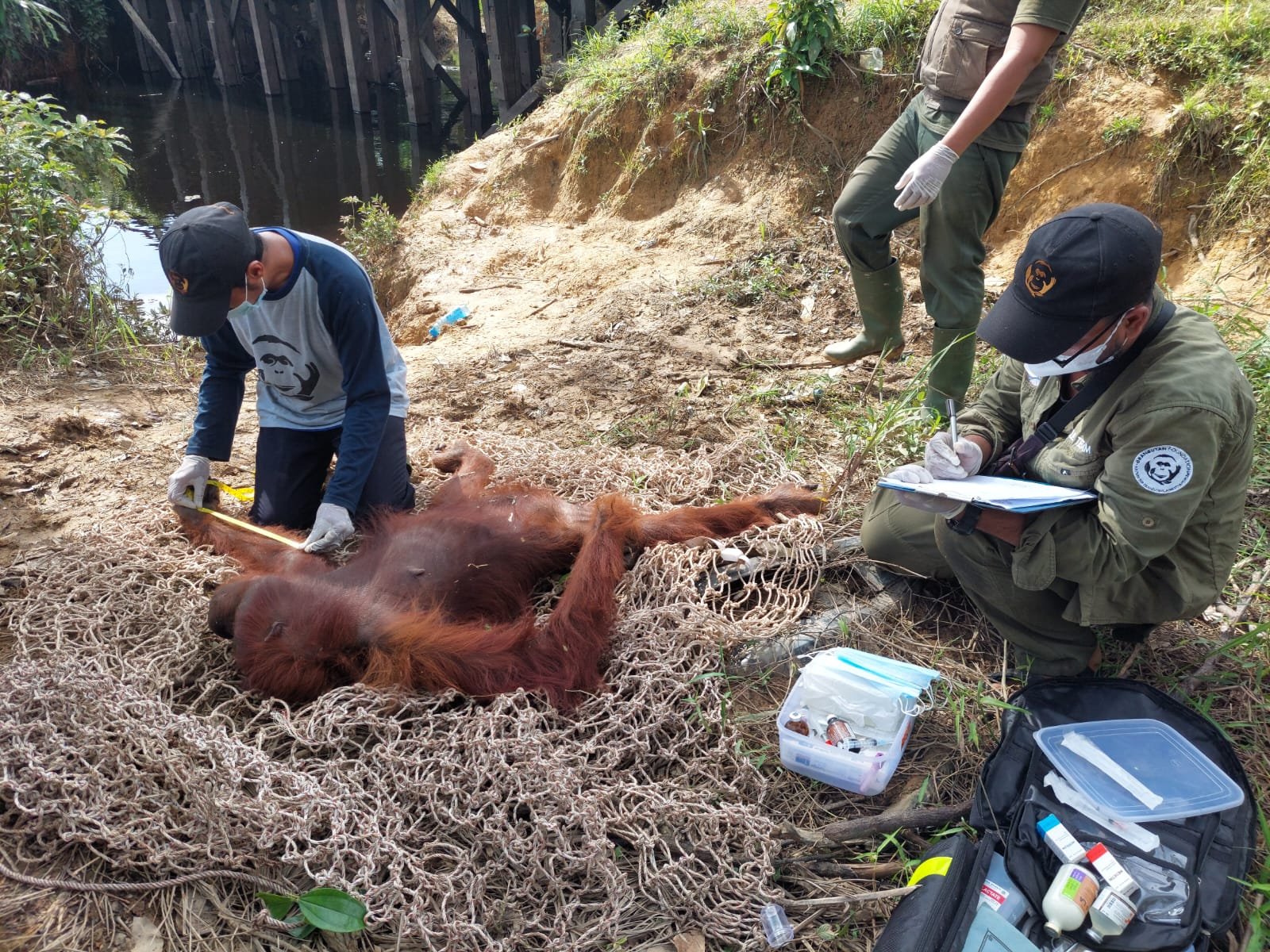In November, we celebrated Orangutan Caring Week – an annual event that is recognized around the world. The week highlights the plight of the orangutan and acknowledges the issues which impact their ability to survive in the wild, such as habitat loss. Behind the celebrations and campaigns showing the crucial work being done to save this species, are the orangutans who have lost their homes. Their habitats continue to get smaller and more fragmented, resulting in increased conflict with people.
Just one week after the celebrations of Orangutan Caring Week this year, the Orangutan Foundation team together with BKSDA were called to a report of a mother orangutan and her infant, who we named Hasna and Hasan, near a village. They had been spotted entering Pembuang Hulu Village and finding refuge in a 500m strip of forest surrounded by the village and its palm oil plantation.
Rescuing an orangutan is not an easy task. Because they dwell in the trees, it can be tricky to get a clear shot with the dart gun used to sedate adult orangutans. Hasna made the rescue teams job even harder by hiding herself and her infant in a nest, covering her body with tree branches and leaves. The team decided to use loud noises to make Hasna move from her nest. It was vital to relocate the orangutans as soon as possible to remove them from any danger from human-wildlife conflict and avoid further distress. Finally, a successful shot was made and Hasna was sedated. When this method of capture is used, a large net is deployed to safely catch the orangutan as they fall from the tree.
The pair were then moved upriver by boat for their medical examination. Thankfully, Hasna was free of air-rifle bullets and pellets, typical indications of human conflict, and had only suffered a minor scratch from the spiny stems of the Rattan trees in the forest she was rescued from. The veterinary team determined that Hasna was 17 years old and Hasan, the male infant, was only 3 months old.
After the examination, Hasna and Hasan were transported to Lamandau Wildlife Reserve where we were able to release them the next day. Hasan will remain by his mother’s side for another 7 to 8 years, learning the skills he’ll need to survive on his own. They join the many other orangutans who live within the reserve that we continue to monitor and protect.
Thanks to your support we are able to provide orangutans with a safe haven to live in. However, this rescue provides a sharp reminder that the 80% of orangutans who live outside of protected areas still encounter daily perils. We have a lot more work to do to protect all orangutans and their habitats.
If you’d like to support our Rescue and Release program, follow the link below for more information.




